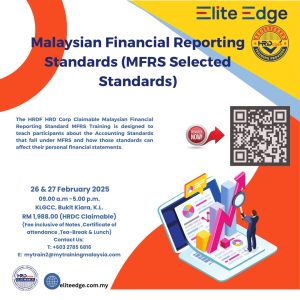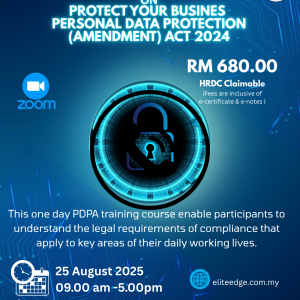INTRODUCTION
In today’s dynamic business environment, financial literacy is no longer a skill reserved only for accountants and finance executives. Every professional—whether in operations, marketing, HR, or management—needs to understand how financial decisions shape organisational performance. The ability to interpret financial reports, control costs, manage budgets, and forecast cash flow empowers employees to make better decisions and contribute more effectively to their company’s success.
This course is designed to bridge the gap between technical finance and practical business application. By simplifying complex accounting and finance concepts into real-world examples, it enables participants to confidently engage in financial discussions and align their decisions with the organisation’s objectives.
Participants will be guided through the essentials of financial statements, the accounting cycle, bookkeeping practices, cash flow management, and business tax considerations. Interactive exercises, practical examples, and relatable scenarios will ensure that the learning is both engaging and applicable to their daily work.
By the end of the programme, participants will not only improve their financial understanding but also develop the skills to identify risks, control costs, and track performance—making them valuable contributors to the organisation’s overall growth and sustainability.
By the end of this course, participants will be able to:
- Understand and Apply Basic Accounting Concepts – Recognise the fundamental principles and concepts underlying financial reporting and decision-making.
- Interpret and Use Bookkeeping Records – Identify and correctly handle key financial documents to ensure accurate and reliable record-keeping.
- Follow the Accounting Cycle – Apply systematic processes to record, post, and summarise transactions into usable financial information.
- Read and Analyse Financial Statements – Interpret the Income Statement, Balance Sheet, and Cash Flow Statement to assess organisational performance.
- Apply Cost Control and Budgeting Practices – Understand how to plan, allocate, and monitor budgets to improve efficiency and profitability.
- Manage and Forecast Cash Flow – Identify cash flow issues, forecast financial needs, and implement strategies to maintain healthy liquidity.
- Understand Tax Concepts Relevant to Business – Recognise deductible expenses, differentiate between tax credits and deductions, and grasp the basics of tax computation.
- Enhance Financial Decision-Making Skills – Use financial insights to make informed operational and strategic decisions aligned with organisational goals.




